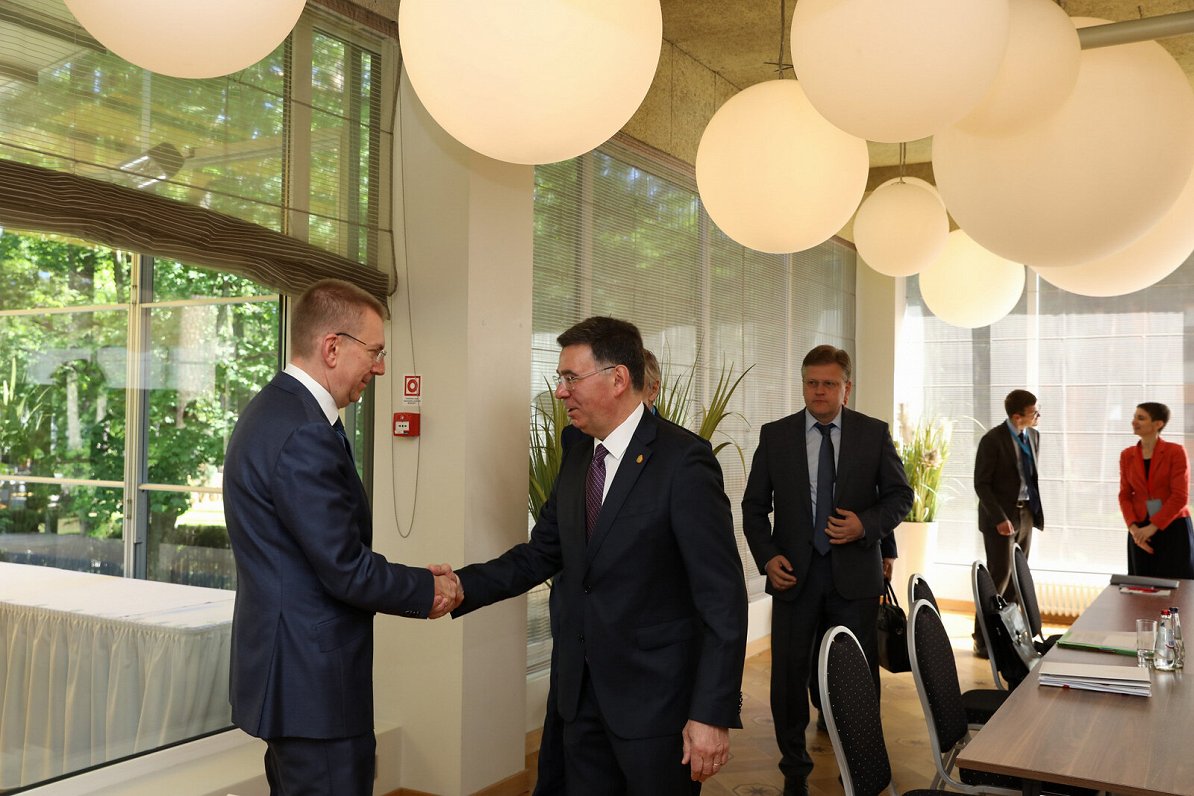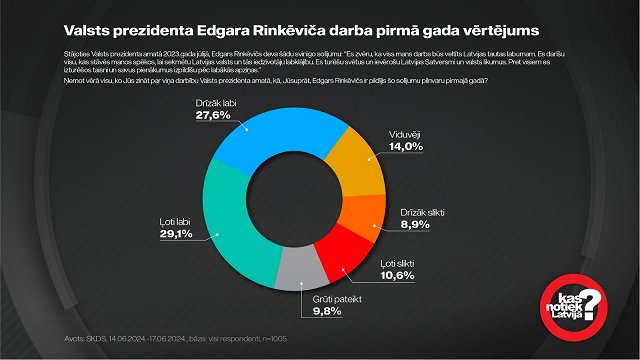Rinkēvičs used the occasion to praise "constructive cooperation on the part of Russia in the drafting of the final documents – the Jūrmala Declaration, and the Roadmap of the CBSS Reforms – as well as throughout the entire period of the Latvian Presidency of the CBSS," according to a release from the Ministry of Foreign Affairs.
“Russia is an important trade partner to Latvia in a number of areas. Therefore, we would like to sustain the positive trend in the development of economic relations, especially in transit and tourism," said Rinkēvičs.
"Latvia sees potential in the strengthening of economic ties between the regions of our countries. An agreement on regional cooperation between the Ministry of Economy of Latvia and the Kaluga Oblast is currently being prepared. Several agreements of this kind between other regions of Latvia and Russia are already in force and being successfully carried out,” said Edgars Rinkēvičs.
We wish to sustain the positive trend of economic relations with ??Russia, said @edgarsrinkevics in a meeting with the Deputy FM of Russian Federation, Alexander Pankin during the concluding #HighLevelMeeting of the ??Latvian Presidency of the #CBSS #Jūrmala #BalticSeaRegion pic.twitter.com/uPHSd75QvY
— Latvian MFA (@Latvian_MFA) June 3, 2019
The parties also discussed the work of the Latvia-Russia Intergovernmental Commission which met recently in Rīga, as previously reported by LSM.
Despite the warm words, Western sanctions imposed after Russia's illegal seizure of Crimea in 2014 remain in place, as does a Russian ban on the import of foodstuffs from European Union countries, which has forced Latvian producers to seek new export markets. Russian authorities recently announced they had destroyed a consignment of Polish apples and tomatoes which they said were being smuggled into the country via Belarus.
Latvia has held the rotating presidency of the Council of the Baltic Sea States for the last year, but will now hand the baton to Denmark. Consisting of 11 Member States (Denmark, Estonia, Finland, Germany, Iceland, Latvia, Lithuania, Norway, Poland, Russia and Sweden), as well as a representative of the European Union, the CBSS functions as a coordinator of a multitude of regional actors in the areas of its three long-term priorities: Regional Identity, Sustainable & Prosperous Region, Safe & Secure Region.
Good morning! We are in Jūrmala today to conclude the #LatvianPresidency of the CBSS @Latvian_MFA. Foreign Ministers and High Level representatives will meet here to discuss the future of cooperation in the #BalticSeaRegion. Stay tuned for updates! pic.twitter.com/TQiGlRS5Ul
— CBSS Secretariat (@CBSSsecretariat) June 3, 2019





























